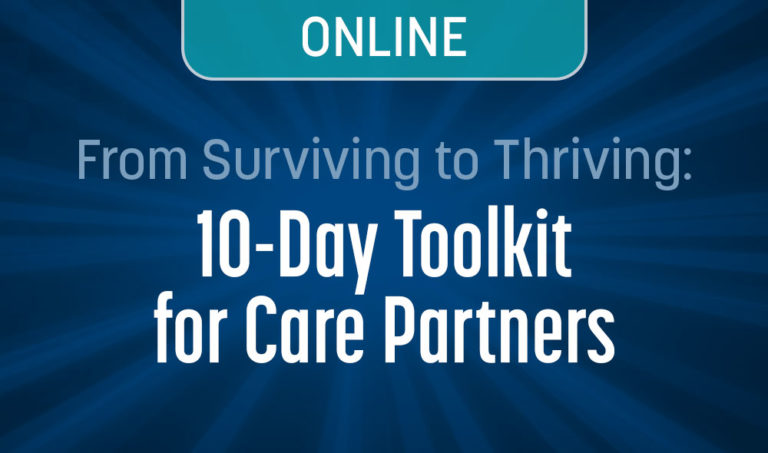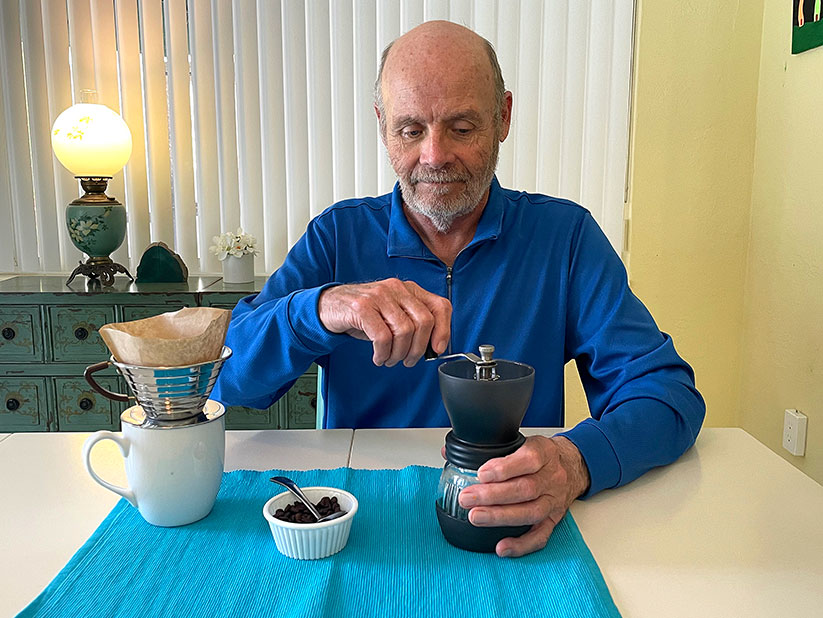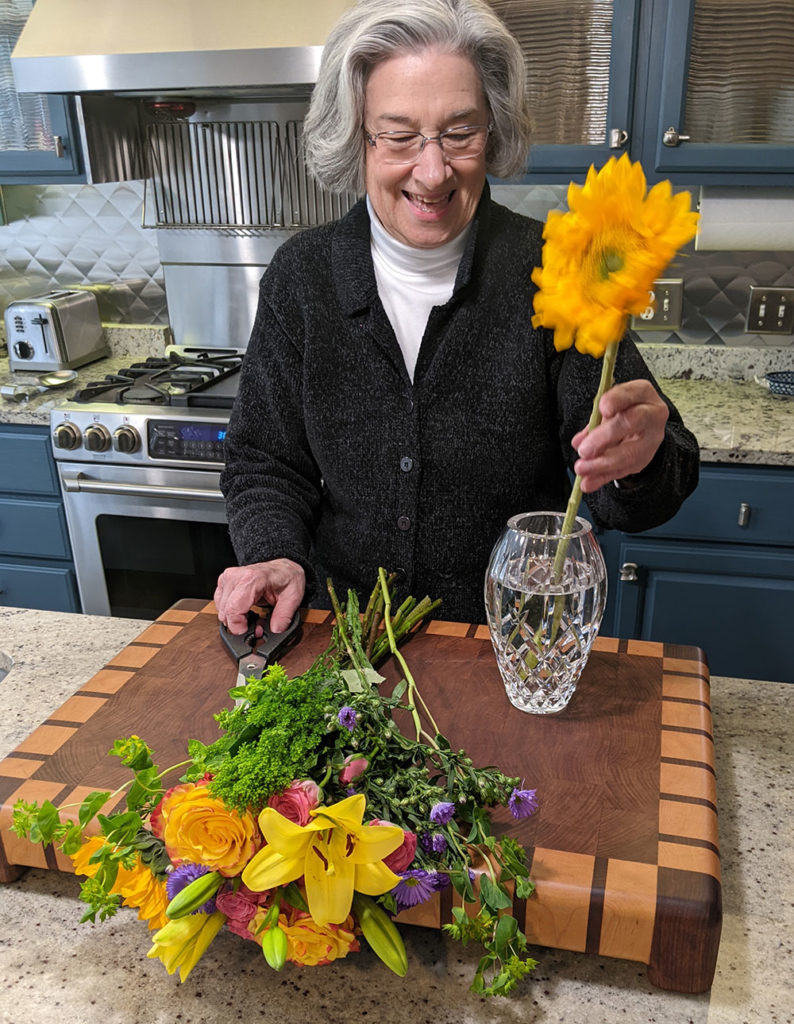
From Surviving to Thriving:
10-Day Toolkit for Care Partners
Self-Paced Online Course
This course takes just 10 minutes a day for 10 days and you will positively transform the dementia care you provide.
We know that your role as a care partner is no small feat and the work you put in everyday can be physically and mentally exhausting, isolating, and time-consuming.
Let me guess… do you have a difficult time getting your loved one to take a bath, engage in mealtime, or get a good night’s sleep?
Whether you are a family or a professional care partner, we have the solution for you!
We have taken the most important yet challenging situations of caregiving and made a toolkit full of resources for you to try out. We know these strategies will increase your loved one’s ability to independently participate in important daily tasks and activities. Doing laundry, maintaining a garden, making a simple meal, as well as getting back to their personal hobbies, and so much more will be addressed.
From Surviving to Thriving: 10-Day Toolkit for Care Partners self-paced online course is just 10 minutes a day for 10 days.

You will receive:
- 10 short pre-recorded videos that you may access in your online account and watch at your convenience, with no limit to the number of times you watch.
- Handouts in your online account that highlight key information and summarize the content. You can print them at any time.
- Tip sheets in your online account to improve overall health and well-being for both you and the person with dementia.
- Activity guides to encourage participation in daily tasks and enhance connection.
It’s time to take the heavy load off your shoulders.
Start TODAY to learn how for only $39.99.
Did you know that there are measures you can take to reduce your risk of developing cognitive impairment? On Day 1, you will learn: several tips to keep the brain healthy for not only you but the person with dementia as well! Simple steps that you can start today will be shared in this short video and tip sheet.
A person with dementia may be resistant to changing their clothes but we’ve got solutions for you that will make dressing a more pleasant task for all involved. On Day 2, you’ll learn: effective communication approaches; strategies to increase engagement from the person with dementia during dressing; and how to make simple changes to the environment that increase cooperation and independence.
Being helped with bathing can make a person feel uncomfortable and vulnerable. In our experience, that’s why care partners find many challenges with this task. In this lesson, we dive into bathing and discuss how the way things look, sound, smell and feel can impact a person’s experience. You’ll learn several alternatives to approach the steps of bathing to fit the specific needs of the person with dementia and wash the stress away!
Just because a person has dementia doesn’t mean they can no longer participate in the experience of making a meal. This lesson reviews methods to improve the mealtime experience for the person with dementia by increasing their motivation to participate in purposeful preparation. We break it all down and provide you with reflective considerations that will help you to understand the root cause of these mealtime challenges.
We compiled all the best strategies to improve independence and participation in the grooming routine. We know that applying these techniques will help to decrease confusion. On Day 5, you’ll learn: techniques for all aspects of grooming including nail care; how the environment impacts grooming tasks; our communication approach; and the importance of a dressing guide to improve independence.
Do you find that the person with dementia is up throughout the night making it difficult for both of you to get a good night’s rest? The contents in this short video provide you with important considerations and easy-to-implement strategies when it comes to all things rest and sleep!
On Day 6, you’ll learn: at least 12 techniques to improve the transition into bedtime as well as the quality and the length of sleep; and tips on how to implement these strategies into a daily bedtime routine.
There’s a misconception that once a person with dementia has lost their memory, there is no hope for recalling events and participating in meaningful conversation. That’s simply not true! In this lesson, we break down 3 supportive memory strategies to increase the connection and interaction between the person with dementia and others. On Day 7, you’ll learn: how to make a memory book; what to put in a memory center in the home or care community; and the benefits of a memory café.
Roles allow us to feel empowered and fulfilled throughout the day. Whether the person with dementia used to make dinner, do laundry, or work out in the yard, there are strategies that can be implemented to reignite their engagement in valuable roles once again. On Day 8, you’ll learn: the steps needed to incorporate at least one role into the everyday life of a person with dementia despite the cognitive decline.
Have you ever found yourself in a situation where a person with dementia is yelling, hitting, or throwing items across the room because of their frustration? Often these behaviors occur because the person has a need that is not being met. On Day 9, you learn: the possible causes for the behavior; strategies to these challenges in the moment; and ways to prevent them from occurring in the future.
We understand the constant struggles that come with being a care partner. The day slips away, and it can be difficult to find the time to take care of yourself. The role of a care partner is both physically and emotionally exhausting but if you do not address your needs then you are putting the health and well-being of not only yourself but the person with dementia in jeopardy. On Day 10, you’ll learn: at least 7 ways that self-care can be incorporated into everyday life.

This program is designed for both family members and professional care partners.
Care Communities may purchase an unlimited use subscription and upload the materials into their learning management system for one low fee. To learn more about our affordable group rate, please contact us.
Are you a caregiver of someone with Alzheimer’s disease or another form of dementia? This course is designed for YOU to partner together to make the day less stressful and run smoothly.

